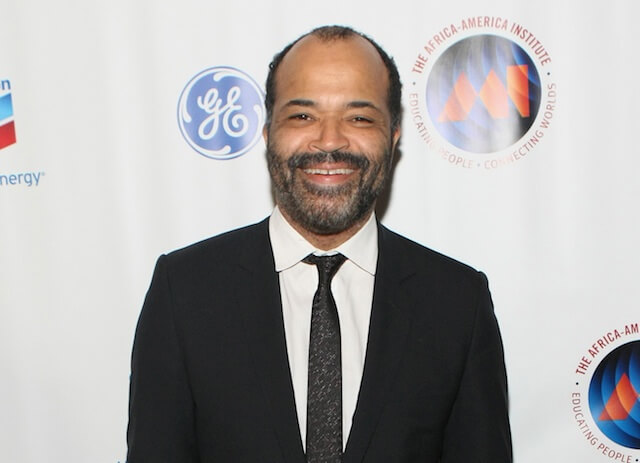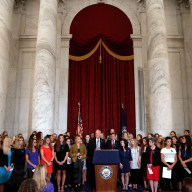Jeffrey Wright doesn’t do a ton of splashy blockbusters; he’s a respectable thespian — a Tony-winner for “Angels in America,” a man of the stage and small movies like “Basquiat.” But “The Hunger Games” franchise is different: political, even politically complex. In “Mockingjay — Part 1,” he reprises his role as tech master Beetee, now confined to a wheelchair as he aids the rebellion, with Katniss (Jennifer Lawrence) as their mascot. The third film is much different from the first two. How did you view the evolution of the politics with this one?
This is the tricky side of these stories. The first book establishes the landscape, the rules through which we view these characters. The second book blows that up. And the third book is about the consequences of that, and this attempt to reassemble the broken pieces of a society at war with itself. It’s intense and messy by design. At the same time it really begins to hit at the heart of the matter in real life. There are moments within this film that seem like moments, for me, right out of a news broadcast. I’m not sure if that speaks to the relevance and the topicality of this film, or if it speaks to the ways in which news reporting is fictionalized today. It’s probably a combination of the two. Some people — right and left — have spotted elements of our government in the Capital, particularly the NSA.
Beetee is the NSA! [Laughs] No, what’s great about these books and these films is they’re wide open to interpretation. Everyone can apply their own politics and their own concerns and perspectives onto these storylines. I don’t see the NSA in anything that’s represented in the Capital. Corporations are more representative of the Capital to me than our government, generally. Our government has to be managed properly and led responsibly, but at least it has a security imperative. [Laughs] At least they’re digging into personal liberties, and ideally have an impulse to protect them. That may not be entirely accurate. But the corporations have zero imperative. They only have a profit imperative. Yet we seem at times to be more up in arms about the government than these leviathan corporations that are digging into personal liberties solely for the sake of making shareholders happy. Still, any government has to deal with actual threats versus civil liberties.
There are threats out there. You have to balance those threats with the protection of civil liberties. Whoever said government was there to promote freedom got it wrong. Government’s the opposite; it’s about restricting freedoms. Because you don’t want everyone to be free. Some people when they’re free are a—holes. The bigger films you tend to do — not just these but the Bond films, in which you play Felix Leiter — tend to be darker-edged entertainments. Is that the draw?
These films, and the Bond films too, have a younger audience. I like that these are films that touch on all these themes, whether they’re social themes or political themes, but filter them through a lens that young minds can appreciate. I think that’s healthy. Particularly for films of this scale they have a healthy layer of cynicism. We try to make them as thrilling as possible and exciting from a cinematic standpoint, but also really try to honor the more tangible and more resonant personal themes, and do that in a way that’s reflective of and not distracting away from the world outside the theater. Follow Matt Prigge on Twitter@mattprigge
Interview: Jeffrey Wright on the politics of ‘The Hunger Games’

Getty Images
















